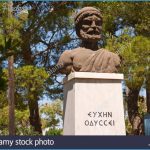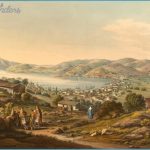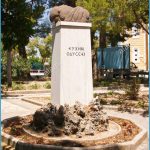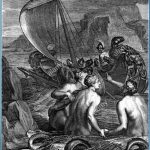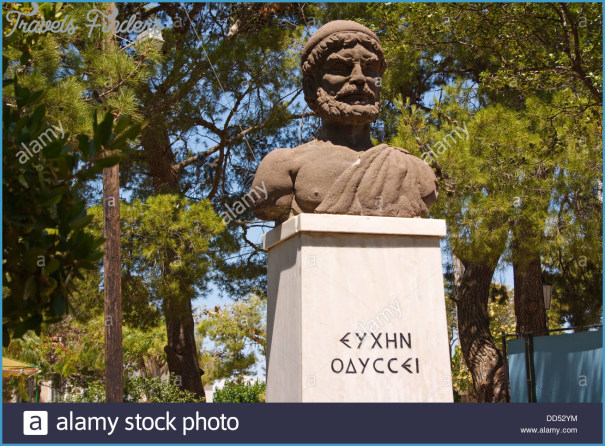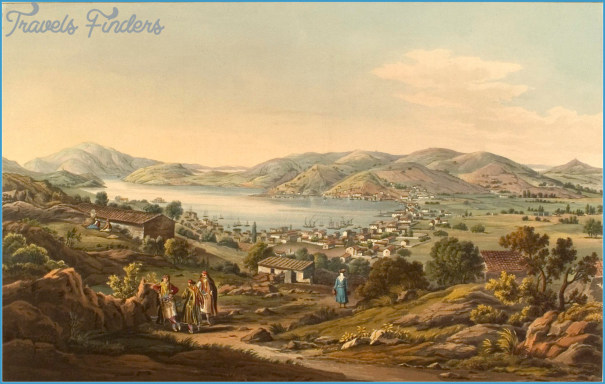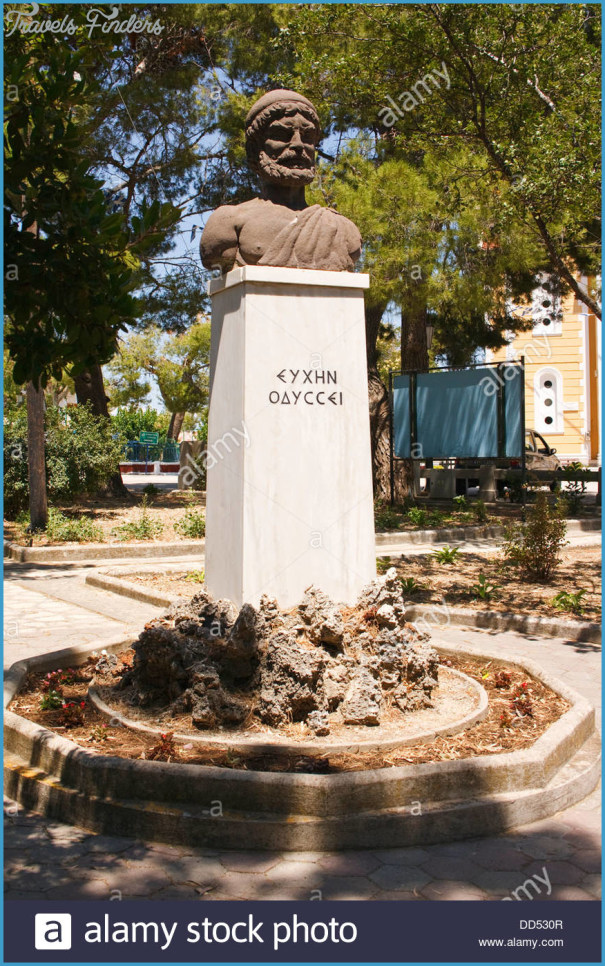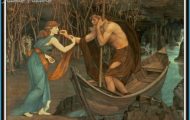The Trojan War finally over, the Greeks’ homecoming – particularly that of Odysseus – was plagued by storms and sabotage. After many years, when he did not return, most thought that Odysseus was dead. Only Penelope still hoped, but her resolve was tested when a plague of bachelors descended upon Ithaca demanding her hand in marriage. These suitors behaved abominably, eating voraciously, drinking copiously and cavorting with the maidservants.
Ithaca in Odysseus’ Absence Photo Gallery
Penelope refused them all, until, pestered to distraction, she agreed to reach a decision, but only after she had woven a winding-sheet for Odysseus’ father Laertes, who now lived on his country farm another possible meaning of Penelope’s name is Weft-Face’ (from pene, weft’ and ops, face’). Progress was slow, and after three years a maidservant revealed why. Weaving at her loom by day, by night Penelope was unpicking all the stitches. Torn between her desire to save the house from ruin by remarrying and a wish to stay faithful to Odysseus’ memory, Penelope despaired.
Or so Homer tells us. Pindar was less convinced, asserting that she slept with Apollo, and so bore Pan, god of the countryside. A different myth has Hermes fathering Pan by her. Another went further, claiming that she slept with all 112 suitors – hence name Pan’s name (‘All’) – and that, returning to Ithaca, Odysseus consequently banished her to the mainland. For most, though, Penelope remains a beacon of fidelity.
With Telemachus nearing manhood, the suitors, seeing him as a threat, plotted his murder. But Athene intervened in the guise of his guardian, Mentor, suggesting that he make one last attempt to learn Odysseus’ fate. So Telemachus hoisted a white sail and put to sea, and the dark waves sang loud around the keel’. His journey took him first to Pylos and then to Sparta. Back in Ithaca he rushed to tell his news to the swineherd Eumaeus, who, fostered in the palace, was treated with considerable respect. Eumaeus embraced him.
Kissing his head and his lovely eyes, and both his hands, and letting fall a great tear. As a loving father greets his beloved son, returning from a distant land in the tenth year, his only son, his darling son, the cause of so much sorrow – so did the noble swineherd embrace godlike Telemachus, and kiss him as if he had escaped death.
Sitting by Eumaeus’ fire was a ragged, weather-beaten man, who revealed his true identity only when he could be sure that he could trust Telemachus. It was Odysseus, returned at last. The story of his homecoming is legendary.

